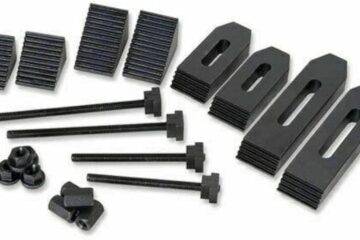Why Is QC Manual Important For Steel Fabrication Manufacturer?

When it relates to fabrication effectiveness, quality assurance is the goal of the business. However, unless you record your procedure in a manufacturing quality control guide, your QC initiatives will be far less productive. A quality assurance manual clearly sets exactly how a manufacturer will satisfy their needs while adhering to laws and keeping expenses underlined, whether they are storing items, moving materials, or providing access to workstations and equipment.
What is a fabrication QC manual?
A manufacturing quality assurance handbook is an excellent way to regulate and record a company’s quality assurance procedures. It outlines the organization’s aims for producing high-quality goods and/or services, as well as how the quality assurance system aids in achieving those objectives.
A QC handbook will include a company’s assurance policy and objectives at a top standard, as well as provide a full explanation of its quality management system, which may include processes, systems, employee roles, and connections, or any other assets that may affect the production chain.
Why fabrication quality control is important?
Safety
To suggest that a regular, consistent manufacturing process leads to excellence may seem obvious. However, quality assurance and safety are ensured through uniformity and regular inspections. A bespoke metal stairway for a mass storage facility, for example, needs meticulous quality control to assure safety.
The angle to the outside stringer of such a metal stairway may well not be strong adequate if the inner stringer isn’t always attached appropriately. If the stairway fails, this might be a severe safety threat. Your custom steel fabricator should be familiar with OSHA regulations and have the competence to estimate your commercial stairs from the start. They may also need a quality control chain of authority in place to ensure continuity and OSHA adherence at all times.
Cost management
The identical metal fabrication quality control techniques that assure safety are essential for cost reduction. A single gap in the procedure might result in lost production as a result of an injury, as well as OSHA charges. Quality assurance should be implemented immediately in production to minimize costly interruption and distribution process costs.
Compliance
If a prospective partner promises to be “compliant” when it comes to metal manufacturing, be sure they follow through. Do they follow industry standards like ASME Section 9 and AWS D1.1 (American Welding Society)? Can they manage safety reports and OSHA regulations properly? Do they have a QC policy that adequately covers OSHA requirements?
For example, OSHA mandates the use of stairwells for safe accessibility to certain kinds of industrial machinery. Your supplier should be ready to provide an industrial access solution that fits your facility’s architecture and complements your bulk storage. Ascertain that they can compute the challenging OSHA-compliant measurements for industrial access equipment while adhering to your facility’s particular standards.
Consistency
Quality assurance, which maintains consistency, requires communication between the client and the metal fabricator. When both parties agree on the end product’s requirements, the partner can determine the QC criteria.
Is your partner aware of the level of precision and accuracy required to guarantee that your final product works as intended? Is the fabrication process going to be consistent and dependable? Finally, do they stress the need for cooperation early on in the design process, and can they offer you clear documentation throughout?
Reputation
When your company’s reputation is on the line due to a variety of possible dangers during manufacturing operations, quality control throughout the fabrication process is essential to keeping your industrial equipment safe, compliant, and productive.
Only a well-established QC program can assure that your metal manufacturing partner can deliver what they promise at a reasonable cost. Is there a quality control handbook for your partner? If that’s the case, make sure the handbook is updated on a regular basis to maintain their employees, supplies, and machinery compatible with legal requirements.
Final thoughts
QC guides also show existing and future clients that your fabrication firm values quality control and strives to produce at a professional level. Documentation demonstrates that the fabricator is willing to be held accountable and is dedicated to producing a high-quality product that meets the customer’s needs. As a result, many potential clients search for fabricators that have quality control procedures in place during the procurement process.











